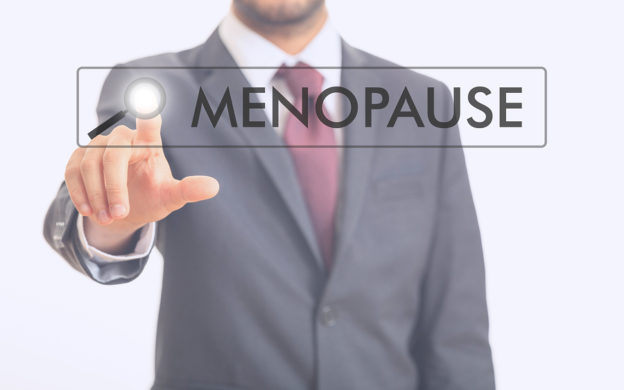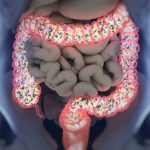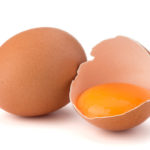By David Blyweiss, M.D., Advanced Natural Wellness
October 15, 2018
- The difference between low testosterone and male menopause
- Is low T a lifestyle choice?
- Grab control of the hormone that makes you manly
There’s a good reason guys are so crazy about girls when they’re in their teens and twenties. At these ages, testosterone levels are practically raging out of control. But once you hit 30, levels begin to drop by as much as 2% each year.
This makes male menopause a very real threat to aging men. (You might also hear this condition referred to as andropause or hypogonadism.)
But these days, I notice more and more guys in their 30s and 40s coming into my office with symptoms of andropause. They complain that their libido is on permanent vacation. They can’t keep the action going in the bedroom. Their energy levels are low and they’re moodier than they’ve ever been in their life.
This clearly isn’t a result of age-related testosterone loss. So what could be behind this anomaly?
Is Low T a Lifestyle Choice?
It should come as no surprise to you that there are many factors in your life that can affect your testosterone levels. And not all of them have to do with growing older.
For example, being significantly overweight at any age is linked to declining testosterone. In fact, somewhere around 40% of obese men have subnormal levels of free testosterone.
MD Exposes the Hidden Danger to Your Eyes

When your eyesight starts to fail, it's a real problem. Suddenly you can't go to the grocery store... you can't get to the doctor if you have an emergency... you can't meet your friends for dinner…
Your "regular" doctor doesn't have time to keep up with the latest research. And the same goes for eye doctors. They go to school to learn how to fit you for glasses and contacts, but have no way of preventing the damage and loss of eyesight that threatens your freedom and independence.
Let me show you something that explains a LOT about how your eyes work.
In my FREE Special Report, I'll show you a HUGE, untapped resource for your eyes that safely and naturally restores clear, effortless eyesight.
Click here to get started...
When I look at numbers like these, I have to admit. Obesity might just be one of the leading causes of dwindling testosterone levels in men.
It’s also quite common for men with type 2 diabetes to suffer from low T. I see it often enough here in my own practice. But I’m not the only one. It’s estimated that between 33% and 50% of men with this metabolic disorder have low plasma testosterone.
And as you probably know, diabetes and obesity often go hand-in hand. These days, we call this toxic combo “diabesity”.
Well, it turns out that diabetic men who are obese are the most likely to suffer from low serum testosterone. So that’s something of a double jeopardy when it comes to your manly ambitions.
But it doesn’t stop there. Not by a long shot.
You’ve probably heard that physical inactivity and sedentary behaviors contribute to the development of diabetes. And you know that these same behaviors tend to pack on the pounds.
Well guess what?
A sedentary lifestyle saps the testosterone right out of your body, even among men of younger ages. This means that every hour you spend as a television-watching-couch-potato you’re robbing your body of the hormone that defines your manhood.
To top it all off, isn’t it just a crazy coincidence that poor sleep habits are associated with an increased risk of diabetes, weight gain and a marked decrease in testosterone levels?
If you suffer from low T… If your drive and ambition flew the coop… If you feel aimless and moody… If it seems your libido is a distant memory…
Grab Control of the Hormone that Makes You Manly
Are You Suffering From...
- Love handles and a pot belly
- Romance that isn't what it used to
- Forgetfulness and inattention
- Low (or no) strength and endurance
- A sex drive that's shifted into neutral...or worse
If so...you may have Mature Male Burnout. Click here to discover more about this unique condition and what you can do about it.
Many men believe that when symptoms of dwindling testosterone levels strike, synthetic testosterone replacement therapy is their only choice.
That’s not true. And, in fact, I discourage it.
You see, these drugs greatly increase your chances of developing a blood clot that can block blood flow. This, in turn, could result in a heart attack or stroke. These clots can even damage the organs in your body and, in some instances, trigger sudden death.
Instead, I recommend that you look at your lifestyle, first.
If you need to lose weight or if you have diabetes, take charge. Cut out the unhealthy processed, sugary, refined and processed foods. Instead, choose a fresh, organic and healthy, Mediterranean way of eating. Get plenty of daily physical activity. Make good sleep habits a number one priority.
As you make these changes and transition to a testosterone-friendly lifestyle, give your body the support it needs.
- There’s an herb called tongkat ali that stimulates the production of testosterone while reducing the substance most of it gets bound to. This allows more free testosterone to remain in your bloodstream. It only takes 100 mg daily to kick your testosterone levels up.
- Forskolin is another herb that helps increase testosterone values and boost free testosterone levels. In fact, in just a few short months it can boost free testosterone by about three and a half percent. Take 500 mg each day.
- Taking a vitamin D3 supplement in the form of cholecalciferol can increase free testosterone by up to 20%. 1,000 to 2,000 IU each day should do the trick. However, if you’ve been diagnosed as vitamin D deficient (30 or less), I recommend up to 5,000 IU daily…retesting your levels around 3 months later.
SOURCES:
McBride JA, et al. Testosterone deficiency in the aging male. Ther Adv Urol. 2016 Feb; 8(1): 47–60.
Dhindsa S, et al. Testosterone concentrations in diabetic and nondiabetic obese men. Diabetes Care. 2010 Jun;33(6):1186-92.
Mulligan T, et al. Prevalence of hypogonadism in males aged at least 45 years: the HIM study. Int J Clin Pract. 2006 Jul 1; 60(7): 762–769.
Al Hayek AA, et al. Assessment of Hypogonadism in Men With Type 2 Diabetes: A Cross-Sectional Study From Saudi Arabia. Clin Med Insights Endocrinol Diabetes. 2017 May 19;10:1179551417710209.
Singh P. Andropause: Current concepts. Indian J Endocrinol Metab. 2013 Dec; 17(Suppl 3): S621–S629.
Priskorn L, et al. Is Sedentary Lifestyle Associated With Testicular Function? A Cross-Sectional Study of 1,210 Men. Am J Epidemiol. 2016 Aug 15;184(4):284-94.
Shan Z, et al. Sleep duration and risk of type 2 diabetes: a meta-analysis of prospective studies. Diabetes Care. 2015 Mar;38(3):529-37.
Xiao Q, et al. A Large Prospective Investigation of Sleep Duration, Weight Change, and Obesity in the NIH-AARP Diet and Health Study Cohort. Am J Epidemiol. 2013 Dec 1; 178(11): 1600–1610.
Leproult R, et al. Effect of 1 Week of Sleep Restriction on Testosterone Levels in Young Healthy Men. JAMA. 2011 Jun 1; 305(21): 2173–2174.
Martinez C, et al. Testosterone treatment and risk of venous thromboembolism: population based case-control study. BMJ 2016;355:i5968
Mohd Effendy N, et al. Eurycoma longifolia: Medicinal Plant in the Prevention and Treatment of Male Osteoporosis due to Androgen Deficiency. Evid Based Complement Alternat Med. 2012;2012:125761.
Godard MP, et al. Body composition and hormonal adaptations associated with forskolin consumption in overweight and obese men. Obes Res. 2005 Aug;13(8):1335-43.
Pilz S, et al. Effect of vitamin D supplementation on testosterone levels in men. Horm Metab Res. 2011 Mar;43(3):223-5.
Wehr E, et al. Association of vitamin D status with serum androgen levels in men. Clin Endocrinol (Oxf). 2010 Aug;73(2):243-8.







